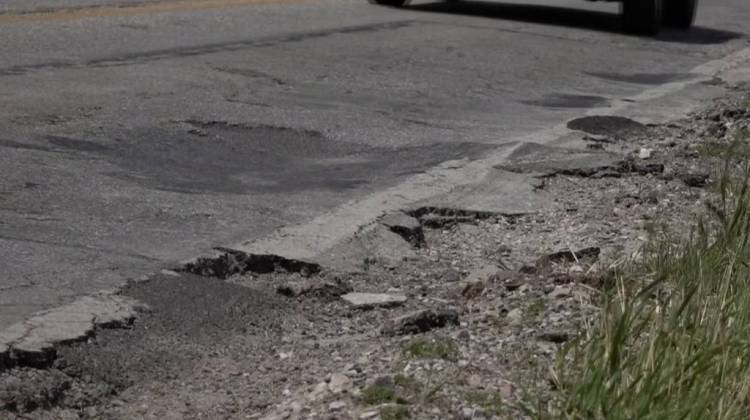
Industrial hemp pollinates prolifically. A slight tap can release a thick cloud of pollen from the plant.
Purdue Agricultural Communication photo/Tom CampbellWARSAW, Ind. (AP) — Some Indiana farmers have started harvesting their first legal crop of hemp without knowing for certain whether it will prove to be lucrative.
President Donald Trump signed the 2018 Farm Bill in December, legalizing hemp. Since then, Indiana farmers have taken out permits to grow thousands of acres of hemp for its fiber, seed and cannabidiol, or CBD, a non-intoxicating compound also found in marijuana.
The hemp flowers and seeds can be processed for fiber to make paper, cloth, rope, wood-like material or hemp concrete.
But farmers said torrential spring rains across the Midwest either washed out some of their crops, including hemp, or delayed planting efforts, the South Bend Tribune reported .
"The late planting date caused challenges because the plants didn't get as tall, they never canopied and that created weed problems," said farmer Mark Boyer.
Boyer cultivated 50 acres of hemp for seed production in 2018 as part of a research project authorized by Purdue University. He planted the same amount this year on his farm in Converse, about 60 miles northeast of Indianapolis. He was planning to cold-press the seeds into top quality food oil and then use the leftovers for high-protein animal feed.
But he said there have yet to be any chemicals approved to regulate weeds, bugs or other issues that hemp plants might face as officials still devise hemp production regulations.
"We're still on our own," Boyer said.
Though Boyer was able to use contemporary farm machinery to plant and harvest his seed hemp, varieties bred for their CBD content are usually planted as seedlings, which is very labor-intensive and time-consuming.
Don Zolman said the rainy spring weather also posed an issue for growing hemp at his farm near Warsaw, and extra work was needed to get new seedlings in the ground since some of the others died.
Justin Swanson, an attorney and the Midwest Hemp Council's co-founder, said Indiana farmers planted about 3,000 acres of hemp plants this year.
With just 24 acres of hemp planted in Indiana last year, Swanson said he views this year's number as a huge achievement and believes that planting will double or triple in 2020.
Hemp will give farmers — many of whom have been struggling due to low commodity prices — the chance to diversify, and it could generate the next generation of farmers, Swanson said.
 DONATE
DONATE







 Support WFYI. We can't do it without you.
Support WFYI. We can't do it without you.